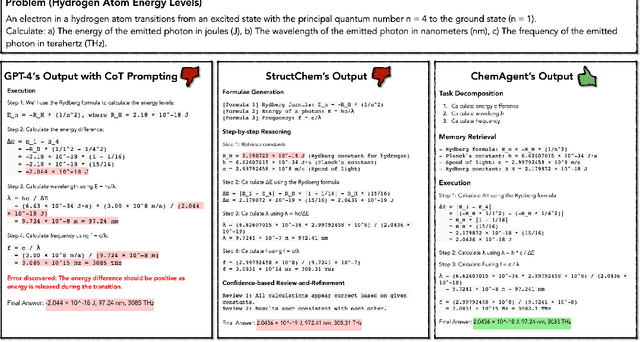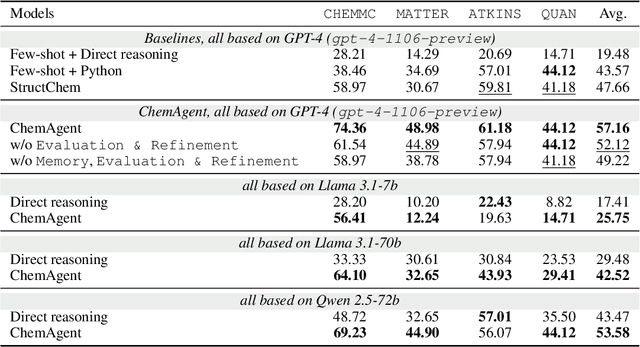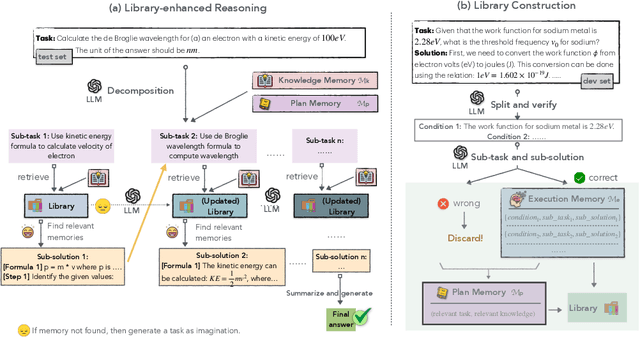Muyang Ye
ChemAgent: Self-updating Library in Large Language Models Improves Chemical Reasoning
Jan 11, 2025



Abstract:Chemical reasoning usually involves complex, multi-step processes that demand precise calculations, where even minor errors can lead to cascading failures. Furthermore, large language models (LLMs) encounter difficulties handling domain-specific formulas, executing reasoning steps accurately, and integrating code effectively when tackling chemical reasoning tasks. To address these challenges, we present ChemAgent, a novel framework designed to improve the performance of LLMs through a dynamic, self-updating library. This library is developed by decomposing chemical tasks into sub-tasks and compiling these sub-tasks into a structured collection that can be referenced for future queries. Then, when presented with a new problem, ChemAgent retrieves and refines pertinent information from the library, which we call memory, facilitating effective task decomposition and the generation of solutions. Our method designs three types of memory and a library-enhanced reasoning component, enabling LLMs to improve over time through experience. Experimental results on four chemical reasoning datasets from SciBench demonstrate that ChemAgent achieves performance gains of up to 46% (GPT-4), significantly outperforming existing methods. Our findings suggest substantial potential for future applications, including tasks such as drug discovery and materials science. Our code can be found at https://github.com/gersteinlab/chemagent
LHQ-SVC: Lightweight and High Quality Singing Voice Conversion Modeling
Sep 13, 2024


Abstract:Singing Voice Conversion (SVC) has emerged as a significant subfield of Voice Conversion (VC), enabling the transformation of one singer's voice into another while preserving musical elements such as melody, rhythm, and timbre. Traditional SVC methods have limitations in terms of audio quality, data requirements, and computational complexity. In this paper, we propose LHQ-SVC, a lightweight, CPU-compatible model based on the SVC framework and diffusion model, designed to reduce model size and computational demand without sacrificing performance. We incorporate features to improve inference quality, and optimize for CPU execution by using performance tuning tools and parallel computing frameworks. Our experiments demonstrate that LHQ-SVC maintains competitive performance, with significant improvements in processing speed and efficiency across different devices. The results suggest that LHQ-SVC can meet
 Add to Chrome
Add to Chrome Add to Firefox
Add to Firefox Add to Edge
Add to Edge